
Welcome to Car Explainer
Make a more informed choice with straightforward information about your options, from modern petrol and diesel engines to hybrid and full-electric cars.
Overwhelmed by choices and information?

Today there is more and more focus on using cleaner technologies to help protect our environment. But, when it comes to buying a car, we know that sheer amount of information and discussion around the topic can make it harder for people to make the right choice for their needs and the environment too.
In fact, 70% of Irish drivers say they would like a website that explains the different engine/fuel types available in Ireland.¹
At Volkswagen, Ireland’s No.1 car brand², we are committed to helping consumers make an informed choice. Different drivers have different needs, which is why we offer a full suite of options, from modern petrol and diesel engines to full-electric or hybrid alternatives.
Electric, hybrid, diesel or petrol?
The first step toward making the best choice for your needs is understanding the characteristics of each type of car available. Below, we've summarised some key information about each car type available.
Battery Electric Vehicles (BEV)
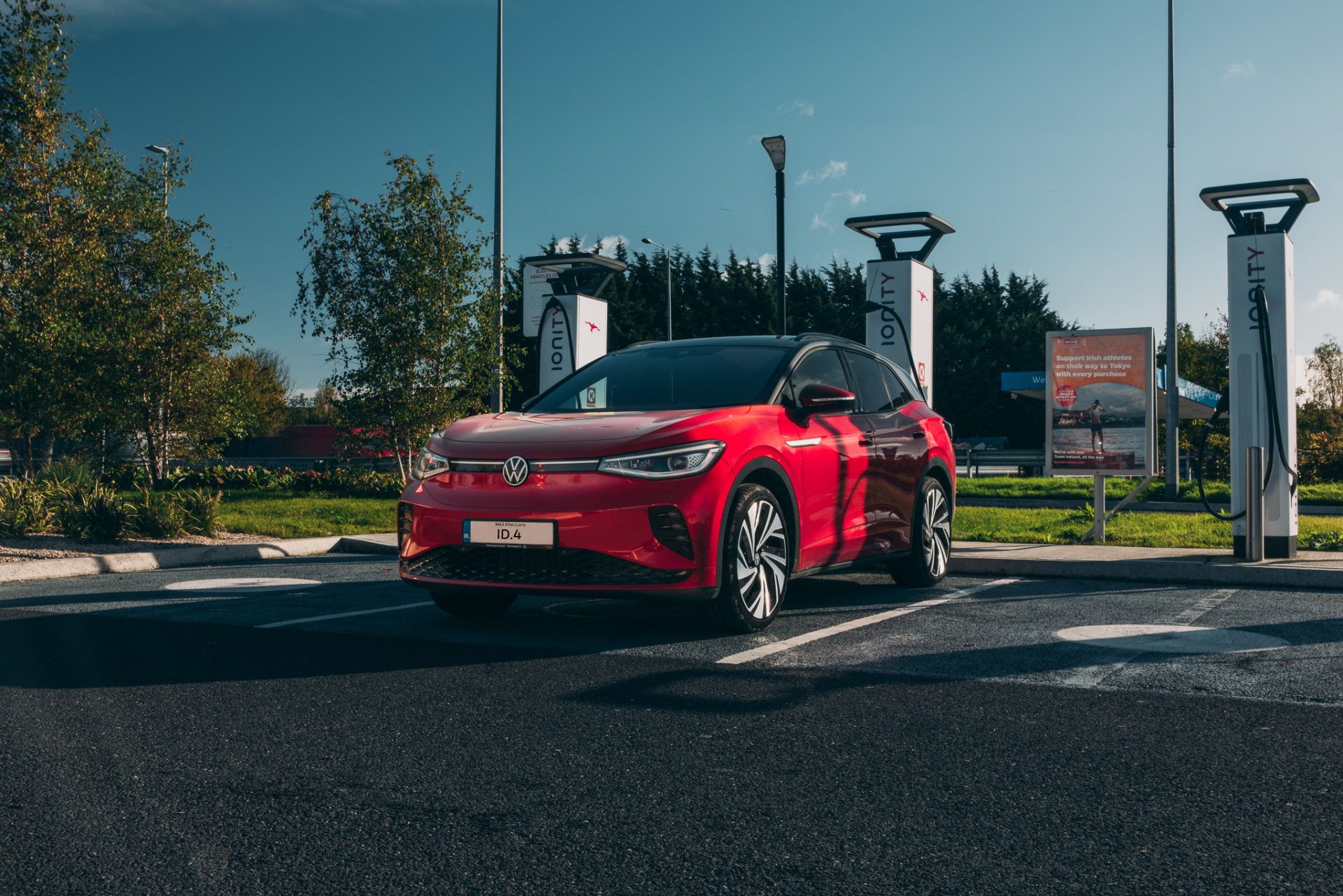
Electric vehicles, or Battery Electric Vehicles (BEV), are powered exclusively by a lithium-ion battery. This means they produce no emissions while driving.
You can charge them at home or at work using special wall-boxes or standard 3-pin sockets. You can also charge them away from home or work at the growing number of public charging points nationwide.
Driving ranges vary by model. For example, the all-new Volkswagen ID.4 has ranges of up to 500km³ on a single charge.
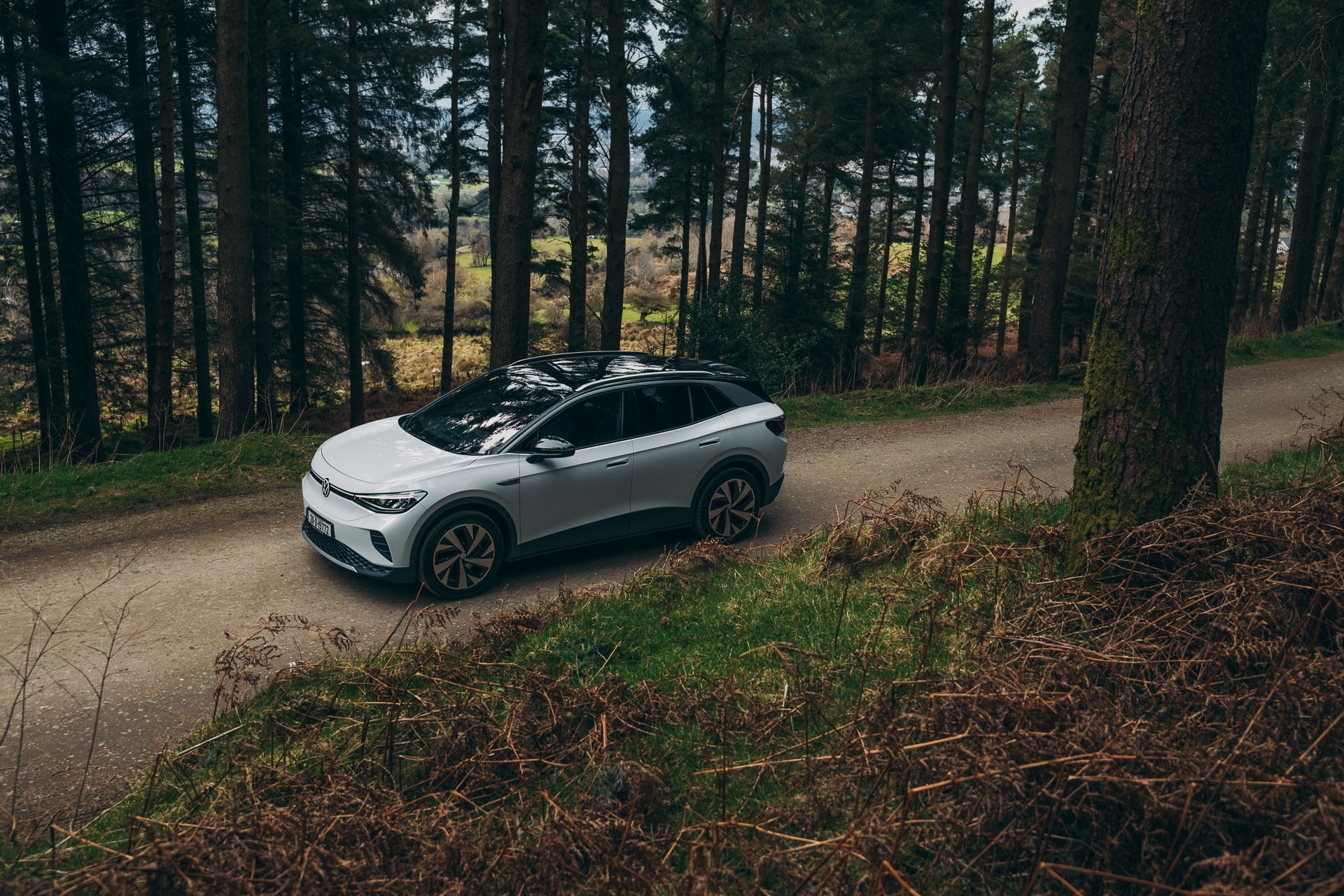
Electric vehicles offer genuine, emission-free driving, with zero carbon dioxide and nitrogen oxide when driving.
Electric vehicles currently benefit from Government-paid financial incentives of up to €10,000⁴.
There are additional incentives such as reduced road tolls, 0% BIK (Benefit in Kind tax) and grants for the installation of home wall-box chargers⁴.
Journey ranges vary depending on the model but the Volkswagen ID.4 has ranges of up to 540km⁵.
Electric vehicles can be charged at home overnight or at the workplace. The public charging infrastructure is growing year-on-year.
Electric vehicles offer smooth, quiet driving and instant electric acceleration. They are controlled using an automatic gearbox.
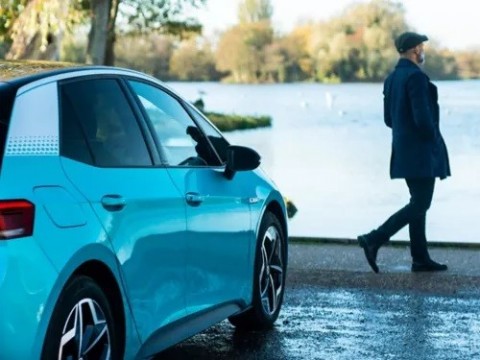
Drivers who want genuine, emission-free driving for 100% of their journeys.
Drivers who want a lower carbon footprint than their existing petrol, diesel or hybrid model.
Drivers who typically have shorter, urban journeys and access to their own charge point (at home or work). However, with improving battery technologies and an expanding public charging network, this will soon become less of a consideration point.
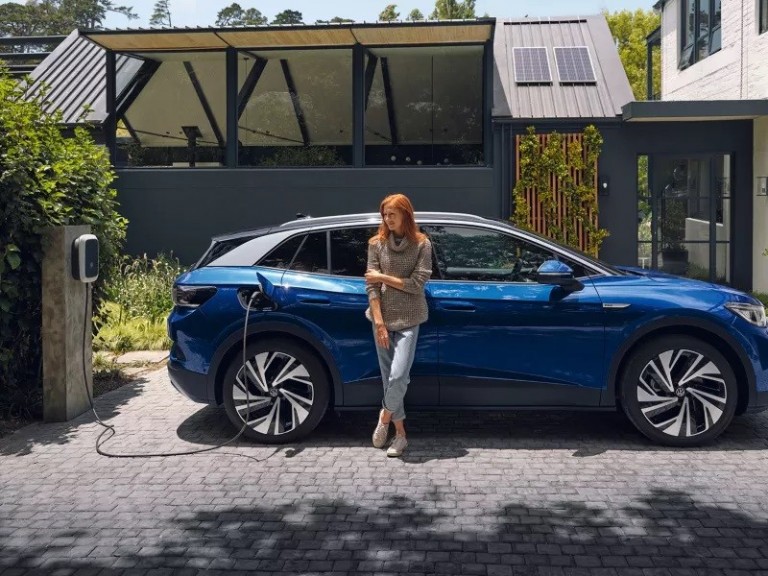
ID.3 Life 204HP
Battery Consumption (WLTP, Combined Driving Profile)
15.5 kWh/100km
Emissions (WLTP, Combined Driving Profile)
CO2 0g/km
NOx 0mg/km
Right now Volkswagen offers two electric vehicles, the ID.3 and the ID.4. These are just the first in a whole new family of exciting fully-electric vehicles designed to make electric vehicles available to everyone.
Plug-in Hybrid Vehicles (PHEV)
A Plug-in Hybrid (PHEV) car generates its driving power in two ways: a large battery-powered electric motor alongside an internal combustion engine which, in most cases, uses petrol.
You can charge them at home or at work using special wall-boxes or standard 3-pin sockets. You can also charge them away from home or work at the growing number of public charging points nationwide.
When you drive using only the electric motor you get genuine, emissions-free driving, like a fully electric car, and the large battery offers journey ranges that suit most everyday trips.
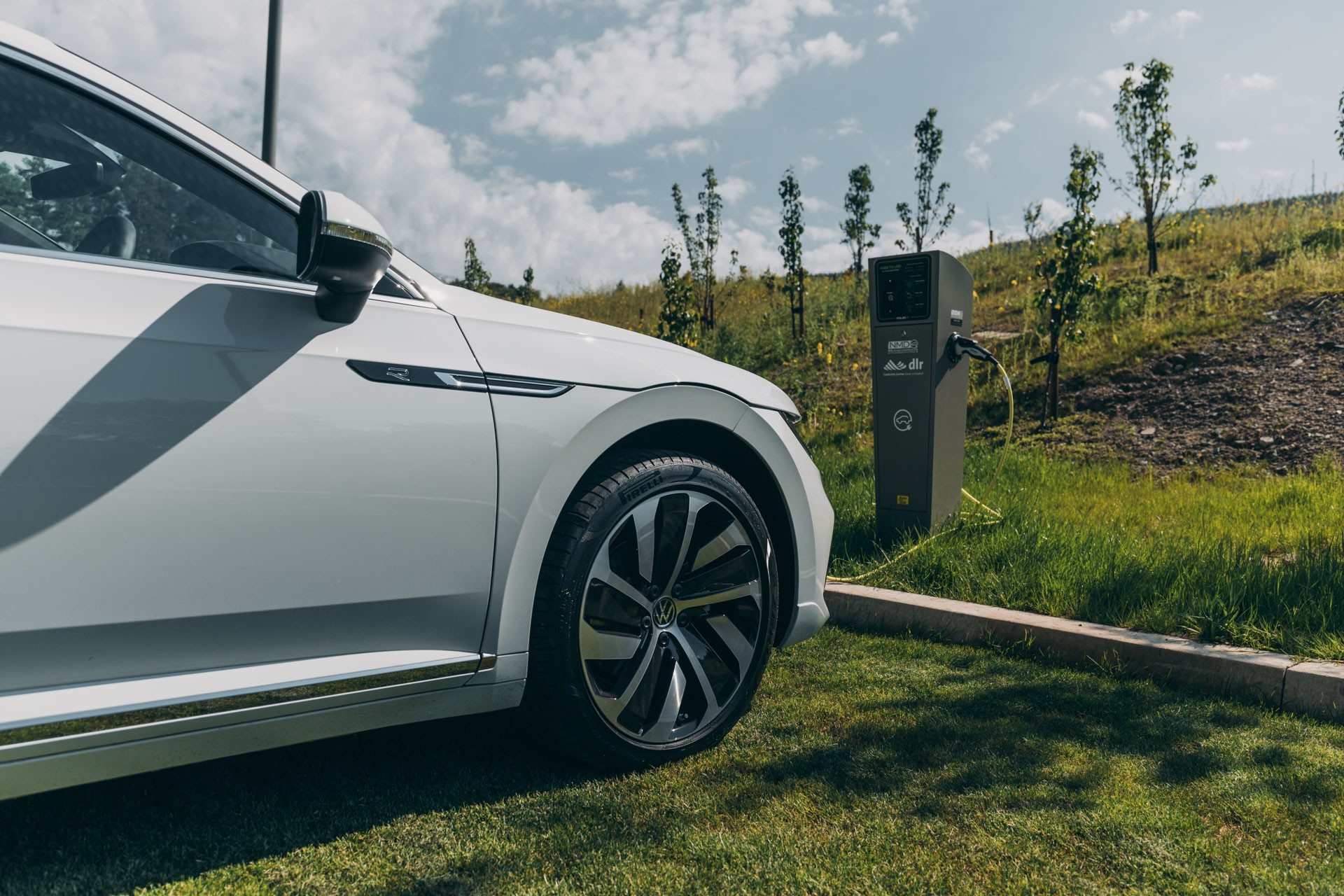
You can also drive using only the petrol internal combustion engine, or a combination of internal combustion engine and electric motor which offers extended journey ranges and significantly lower emission levels compared to a regular petrol, diesel or mild hybrid model⁶.
Driving ranges vary by model. For example, the Passat GTE Plug-in Hybrid has an electric-only range of up to 59km⁷ on a single charge.
Plug-in Hybrid vehicles offer genuine, emission-free driving, with zero carbon dioxide and nitrogen oxide when driving in fully-electric mode.
Plug-in Hybrid vehicles currently benefit from Government-paid financial incentives of up to €5,000. There are additional incentives such as reduced road tolls and grants for the installation of home wall-box chargers.
Electric-only journey ranges vary depending on the model, but the Passat GTE Plug-in Hybrid has an electric-only range of up to 59km⁸ on a single charge. Switching to a combination of electric and internal combustion power offers unlimited range.
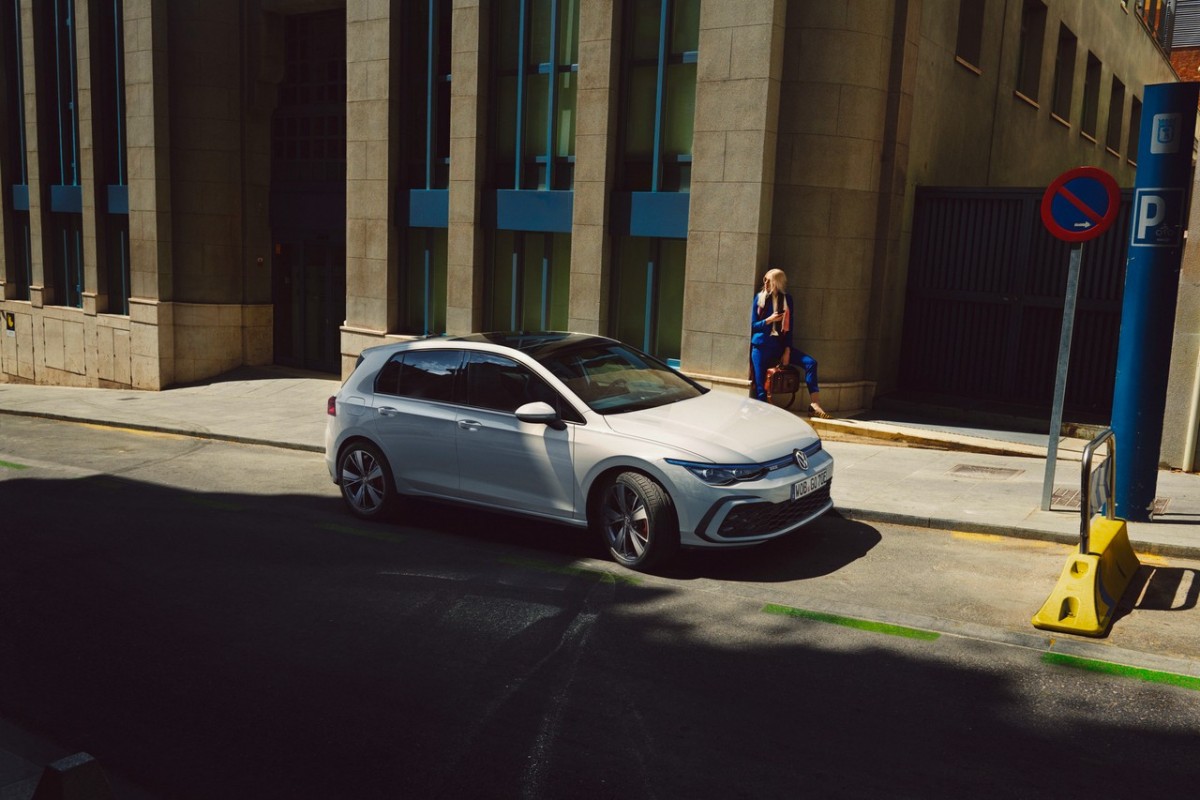
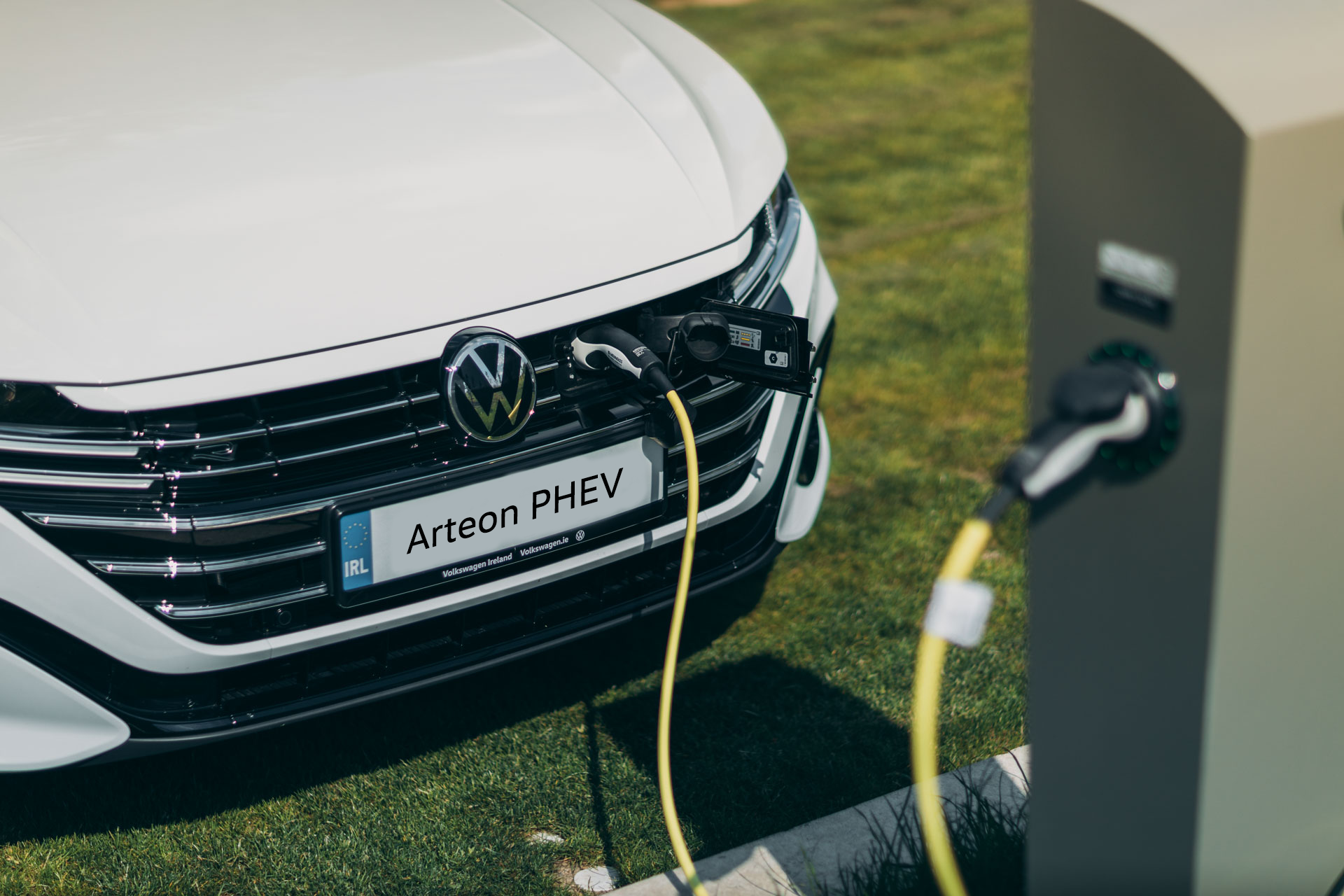
Plug-in Hybrid vehicles can be charged at home overnight or at the workplace. The public charging infrastructure is growing year-on-year.
Plug-in Hybrid vehicles offer smooth, quiet driving and instant electric acceleration in electric-only mode.
They are controlled using an automatic gearbox, regardless of whether you are driving electric-only, internal combustion engine, or a combination of both.
Intelligent software automatically manages the balance of electric and internal combustion engine power to deliver the most efficient driving experience when you are using both power sources.
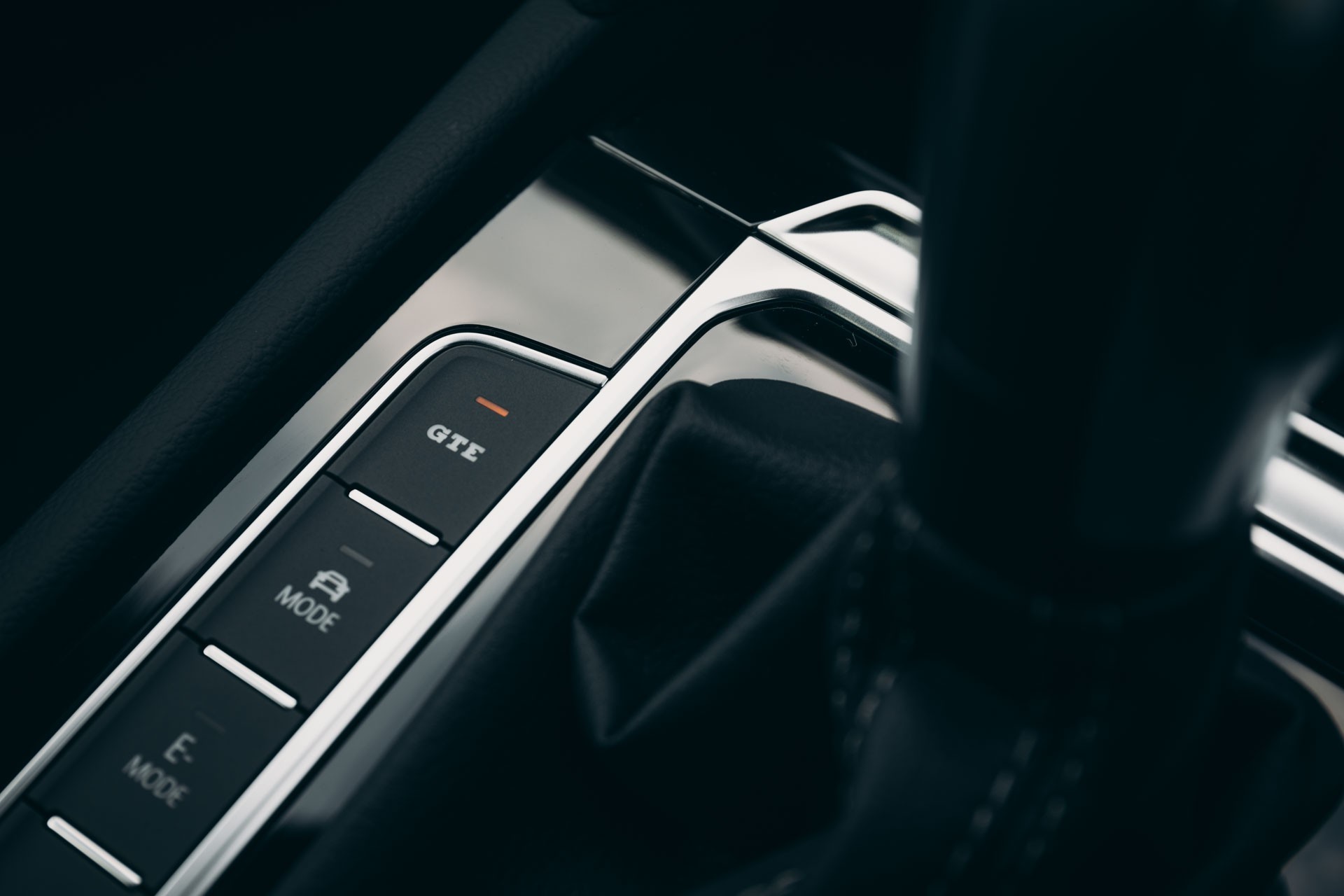
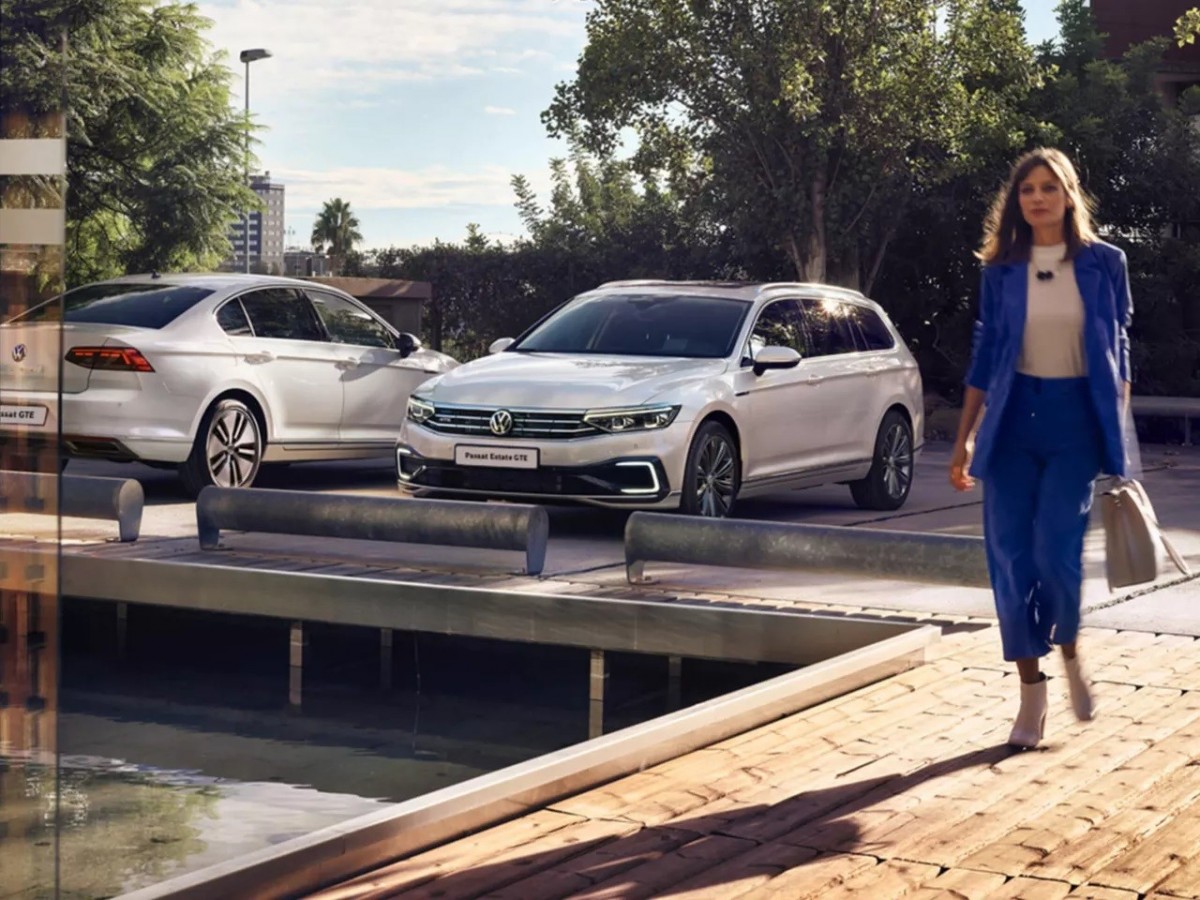
Drivers who want the option of genuine, emission-free driving for their shorter journeys, such as a typical commute.
Drivers who want a lower carbon footprint than their existing petrol, diesel or mild hybrid model.
Drivers who regularly have shorter, urban journeys and access to their own charge point (at home or work).
Drivers who combine shorter journeys with longer inter-county and nationwide journeys and want the ability to complete longer journeys without the need to recharge the battery.
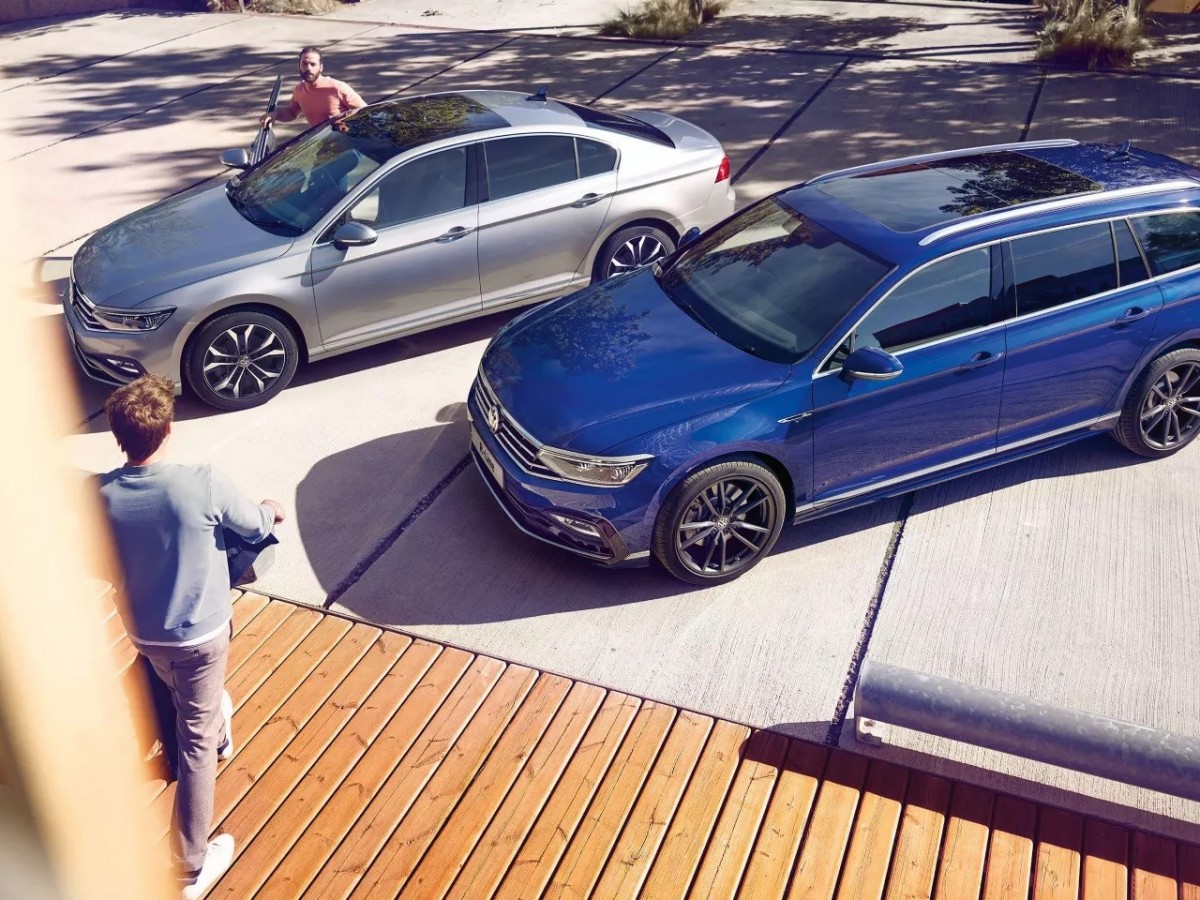
Golf GTE 1.4 TSI 245HP
Fuel Consumption (WLTP, Combined Driving Profile)
1.1l/100km
Emissions (WLTP, Combined Driving Profile)
CO2 26g/km
NOx 16mg/km
Passat GTE 1.4 TSI 218HP
Fuel Consumption (WLTP, Combined Driving Profile)
1.3l/100km
Emissions (WLTP, Combined Driving Profile)
CO2 29g/km
NOx 18mg/km
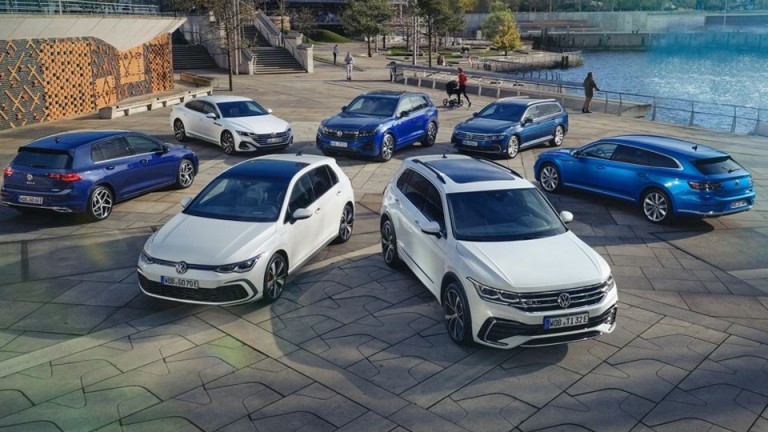
Current Plug-in Hybrids available from Volkswagen include:
- Golf Style eHybrid
- Golf GTE Plug-in Hybrid
- Tiguan eHybrid
- Passat GTE Plug-in Hybrid
- Arteon eHybrid
- Arteon Shooting Brake Plug-in Hybrid
- Touareg eHybrid
Hybrid Vehicles (HEV & MHEV)
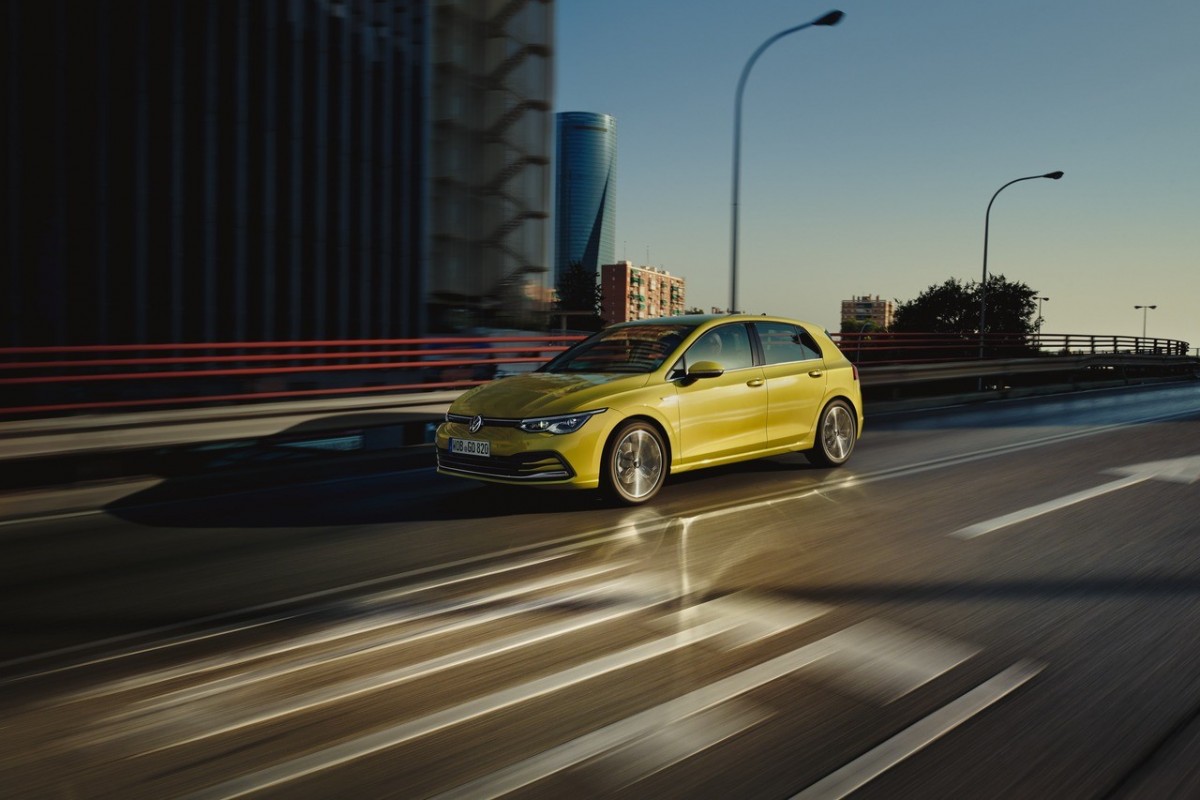
A hybrid car uses an electrical motor or generator to assist an internal combustion engine (usually petrol) in generating driving power.
Hybrid cars have been available almost worldwide since the 1990s and come in two forms: Conventional Hybrid (HEV) and Mild Hybrid (MHEV). Conventional Hybrids (HEV) typically have a larger electrical motor/generator compared to Mild Hybrids (MHEV), thus allowing increased assistance to the combustion engine.
Hybrid cars are not charged by plugging them into a power source. Instead the power for the electric motor or generator comes from the internal combustion engine and from regenerative braking which captures energy used in braking and delivers it to the electric motor.
Depending on driving habits, Hybrid cars can deliver improved fuel economy and reduced emissions. However, unlike fully electric (BEV) or Plug-in Hybrid (PHEV) cars, they are still reliant on their internal combustion engine on typical journeys.
Driving ranges vary by model. For example, the Golf 1.5 TSI Mild Hybrid has an electric-only range of up to 59km⁹ on a single charge. They are controlled using an automatic gearbox, regardless of whether you are driving electric-only, internal combustion engine, or a combination of both.
Intelligent software automatically manages the balance of electric and internal combustion engine power to deliver the most efficient driving experience when you are using both power sources.
Hybrid vehicles may improve fuel efficiency and reduce emissions, compared to their petrol and diesel equivalents, depending on the driving style and distance.
Hybrid vehicles are more efficient on short, urban journeys than on longer inter-county and nationwide journeys. On longer journeys the extra weight of the electrical motor or generator makes hybrid vehicles less efficient.
Unlike Plug-in Hybrids, Hybrid vehicles do not need to be plugged into an external electric power source. Instead they are self-charged by the engine and braking system.

Hybrid vehicles are typically more expensive than their internal combustion engine equivalents.
Hybrid vehicles do not benefit from Government-paid financial incentives, benefit-in-kind exemptions or reduced road tolls.
Hybrid vehicles typically use an automatic gearbox.
Drivers who regularly have shorter, urban journeys which maximise the potential benefits and economies of electrical assistance to the engine.
Drivers who want greater fuel efficiency on shorter, urban journeys.
Golf 1.5 eTSI 150HP (MHEV)
Fuel Consumption (WLTP, Combined Driving Profile)
5.9 - 6.3l/100km
Emissions (WLTP, Combined Driving Profile)
CO2 134 - 142g/km
NOx 28.2mg/km
Toyota Corolla 1.8 e-CVT 122HP (HEV)
Fuel Consumption (WLTP, Combined Driving Profile)
4.5 - 4.8 l/100km
Emissions (WLTP, Combined Driving Profile)
CO2 102 - 111g/km
NOx 3mg/km
The Golf from Volkswagen is available with the new eTSI mild-hybrid system.
Diesel Vehicles
A diesel vehicle uses a diesel-fuelled engine exclusively for its propulsion. Generally speaking, diesel engines offer better fuel economy than their petrol equivalents as they use less fuel, especially over longer distance motorway driving. Similarly, they may emit less CO2 than comparable petrol vehicles¹⁰. Some diesel vehicles may emit more NOx than petrol vehicles but advanced engineering has significantly reduced these particles as they must conform to stringent EU emission regulations. In Ireland, diesel vehicles have accounted for almost 36% of all new car sales so far this year (as of July 8th 2021).¹¹
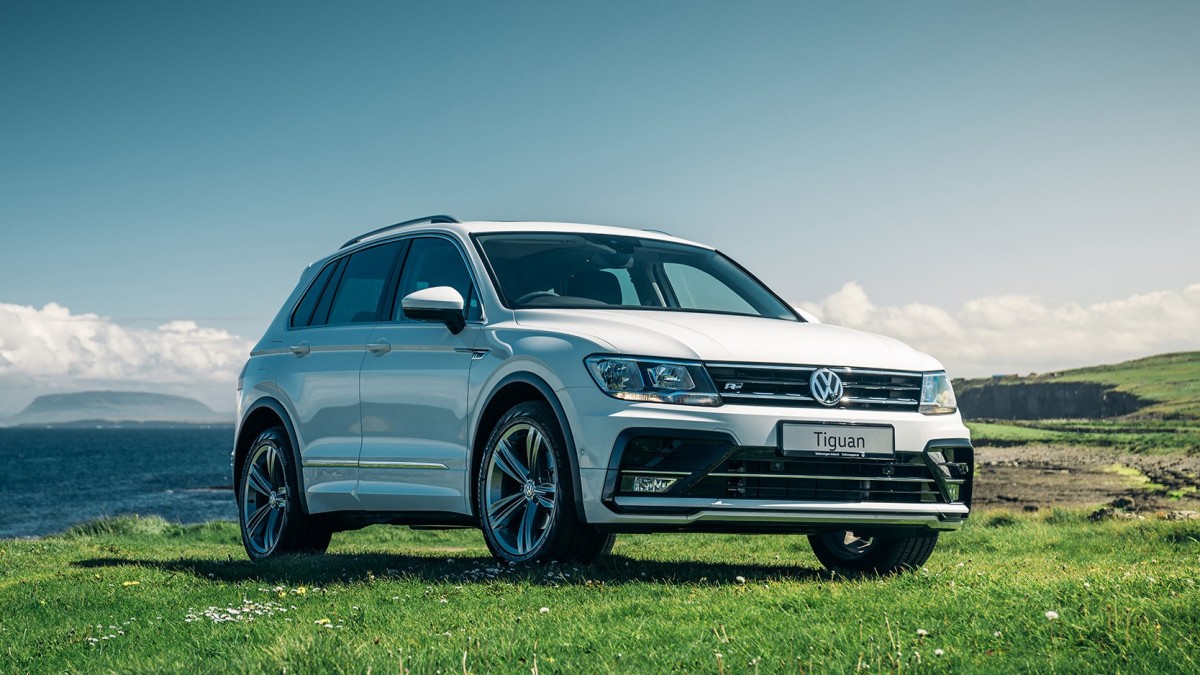
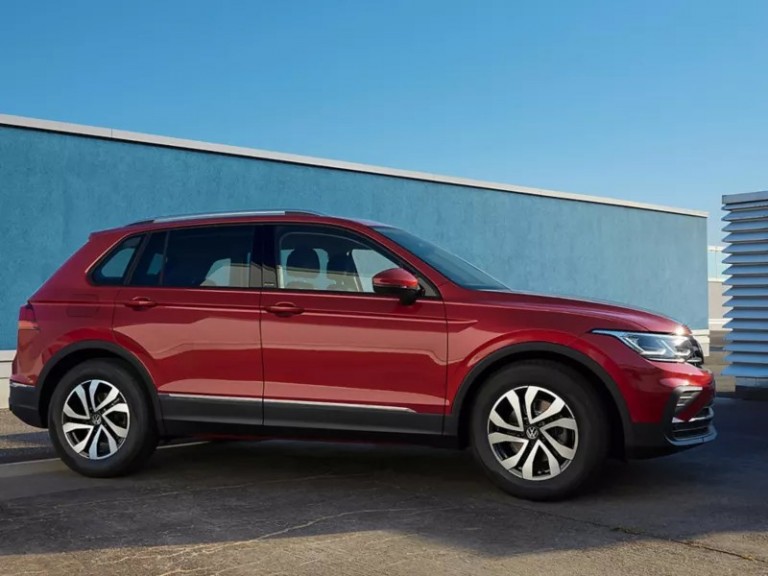
Diesel vehicles may improve fuel efficiency, compared to their petrol equivalents, depending on the driving style and distance.
Diesel fuel is currently cheaper than petrol in Ireland, adding to the cost efficiencies of diesel cars.
Diesel vehicles are more fuel efficient on longer inter-county and nationwide journeys than on short, urban journeys.
Diesel vehicles are typically cheaper to tax than their petrol equivalents because of their lower CO2 emissions.
Diesel engines are more suited to powering medium to large cars than smaller urban style cars.
Diesel engines provide more torque, which means more power for carrying and towing heavy loads.
Diesel cars are usually available with manual or automatic gearboxes.
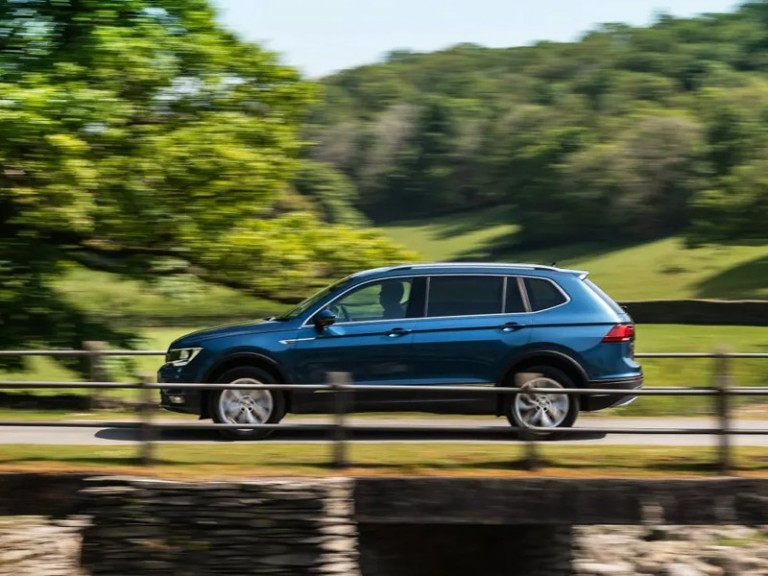
Diesel vehicles are best suited for longer distance driving as they offer superior fuel efficiency compared to petrol. Diesel engines also have higher torque at lower speeds. This results in a more relaxed drive as the engine doesn’t feel like it is working too hard. Diesel fuel performs optimally when driven on longer journeys (as the engine has warmed up) so are not as well suited for short, stop/start urban driving.
Golf 2.0 TDI 150HP (DSG Automatic)
Fuel Consumption (WLTP, Combined Driving Profile)
4.5 - 4.7l/100km
Emissions (WLTP, Combined Driving Profile)
CO2 117 - 122g/km
NOx 28.7mg/km
Passat 2.0 TDI 150HP
Fuel Consumption (WLTP, Combined Driving Profile)
4.7 - 5.1l/100km
Emissions (WLTP, Combined Driving Profile)
CO2 122 - 134g/km
NOx 36.5 mg/km
Tiguan 2.0TDI 150HP
Fuel Consumption (WLTP, Combined Driving Profile)
5.5 - 6.0l/100km
Emissions (WLTP, Combined Driving Profile)
CO2 145 - 158g/km
NOx 56.8 mg/km
Most models in the Volkswagen range are available with diesel engines. Typically, customers opt for diesel engines for the larger SUV (Tiguan, Touareg) and Saloon (Passat, Arteon) models.
Petrol Vehicles
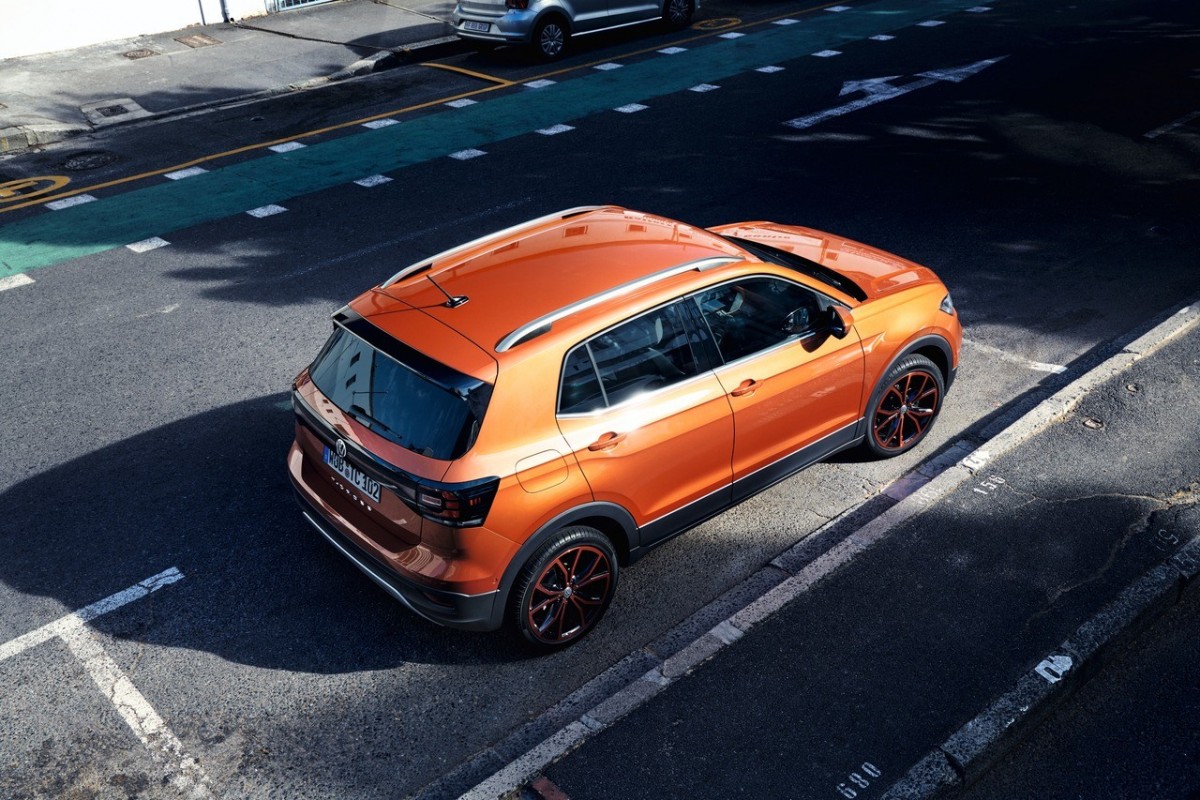
A petrol car uses a petrol (gasoline)-fuelled internal combustion engine to generate driving power.
Generally speaking, a petrol car is less expensive to buy than their hybrid, diesel, plug-in hybrid or electric equivalents. Whilst they are overall less fuel-efficient and emit more CO2 than diesel vehicles, their NOx emissions are typically lower. However, new technologies have helped reduce their emissions and ensure they conform with strict EU emissions regulations. Because a petrol engine revs quicker than a diesel engine the drive is typically more responsive and lively.
In Ireland, petrol engines accounted for almost 31% of all new car sales in so far this year (as of July 8th 2021)¹¹.
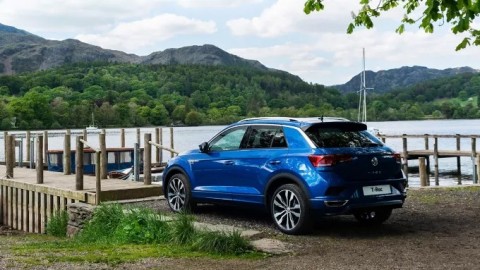
Petrol vehicles are generally less fuel efficient than diesel equivalents, depending on the driving style and distance.
Petrol fuel is currently somewhat more expensive than diesel in Ireland, adding to the cost of running a petrol car.
Petrol vehicles usually cost less to buy than their diesel, hybrid or all-electric equivalents.
Petrol vehicles are more suited to shorter, urban journeys and shorter commutes than they are to longer inter-county and nationwide journeys.
Petrol engines offer a responsive, lively drive which makes them better suited to smaller, urban style cars and SUVs.
Petrol vehicles are typically more expensive to tax than their diesel equivalents because of their higher CO2 emissions.
Petrol engines provide less torque, which means you could consider a larger petrol engine or a diesel engine if you need the power for carrying and towing heavy loads.
Drivers who regularly take shorter urban journeys and daily commutes.
Drivers who often make multiple, shorter daily journeys, such as school runs, urban commutes and shopping trips.
Drivers who enjoy the all-round performance and drive-enhancing qualities and agility of a responsive petrol engine.
Urban drivers looking to lower their NOx emissions in cities and towns.
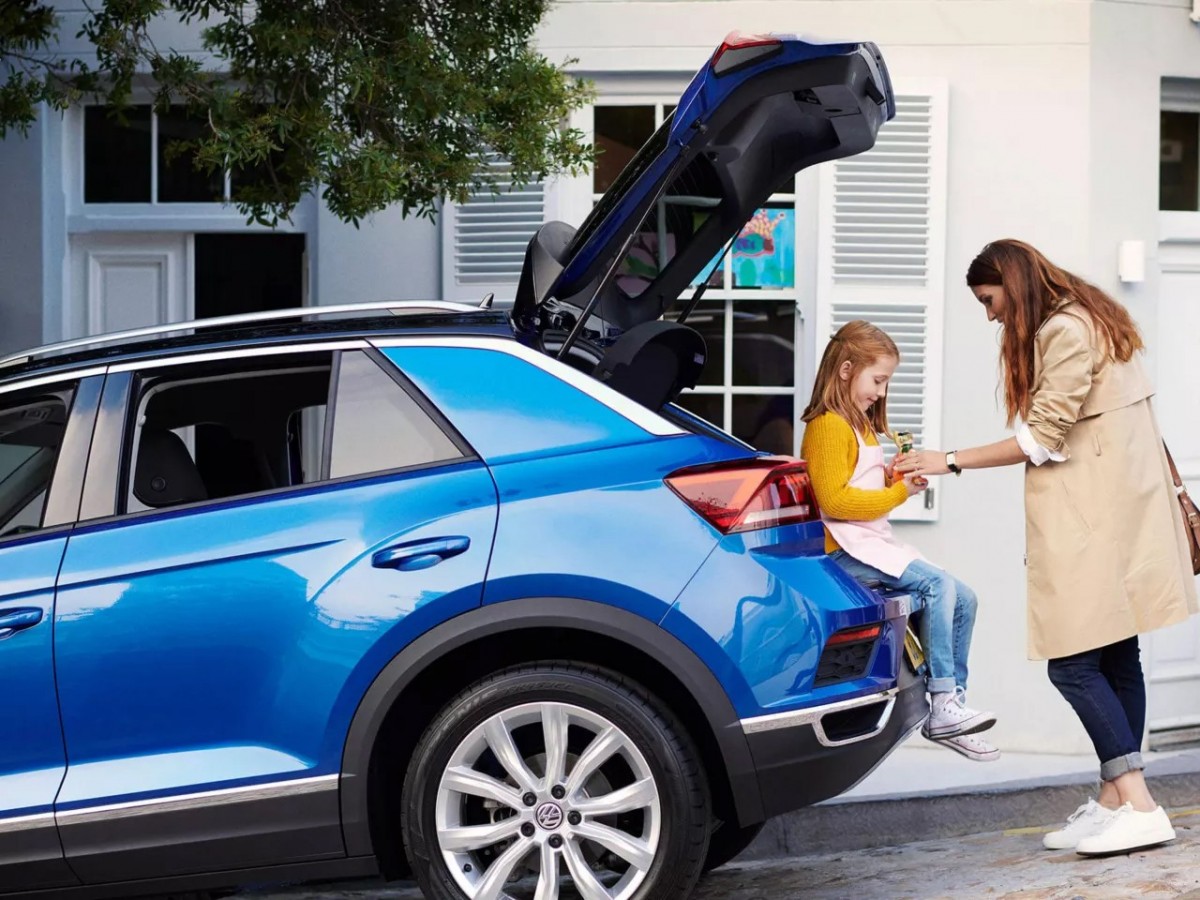
Golf 1.5 TSI 130HP
Fuel Consumption (WLTP, Combined Driving Profile)
5.5 - 5.7 l/100km
Emissions (WLTP, Combined Driving Profile)
CO2 124 - 130g/km
NOx 47.2mg/km
Passat 1.5 TSI 150HP
Fuel Consumption (WLTP, Combined Driving Profile)
5.9 - 6.4l/100km
Emissions (WLTP, Combined Driving Profile)
CO2 133 - 147g/km
NOx 39.1 mg/km
Tiguan 1.5 TSI 150HP
Fuel Consumption (WLTP, Combined Driving Profile)
6.8 - 7.6l/100km
Emissions (WLTP, Combined Driving Profile)
CO2 155 - 172g/km
NOx 36.7 mg/km
Polo 1.0 TSI 95HP
Fuel Consumption (WLTP, Combined Driving Profile)
5.7 - 6.0l/100km
Emissions (WLTP, Combined Driving Profile)
CO2 138 - 150g/km
NOx 27.1 mg/km
Most models in the Volkswagen range are available with petrol engines. The smaller hatchbacks such as the Polo and smaller SUVs like the T-Cross and T-Roc tend to be more popular in their petrol versions.
Next steps

Can't find what you're looking for?
Why not try our simple FAQ section

Interested in learning more? Meet one of our trained experts in the Volkswagen retailer network.
Find your local retailer
Disclaimers
- Survey sample size: 500. Date: February 2021
- Based on annual new car registrations in Ireland from each year from 2017 - 2020
- ID.4 LIFE 77kWh2, Range KM WLTP Combined (517), Power ConsumptionWLTP, kWh/100km: 17.4, Combined CO2 (WLTP): 0. Predicted range for going through cycles in accordance with the Worldwide Harmonized Light Vehicles Test Procedure (WLTP) on chassis dynamometer (no series status). WLTP range values for standard vehicles may vary depending on equipment. In practice, the actual range varies depending on driving style, speed, use of convenience/auxiliary equipment, outside temperature, number of passengers/additional load, and topography.
- This information is correct at time of publishing and every effort is made to maintain this. Please contact your local retailer to confirm up to date information about grants available.
- ID.3 Tour Battery Size (kWh2): 77 | Rang KM (WTP Combined) 547. Predicted range for going through cycles in accordance with the Worldwide Harmonized Light Vehicles Test Procedure (WLTP) on chassis dynamometer (no series status). WLTP range values for standard vehicles may vary depending on equipment. In practice, the actual range varies depending on driving style, speed, use of convenience/auxiliary equipment, outside temperature, number of passengers/additional load, and topography. 6. Passat GTE DSG Saloon 1.4 TSI PHEV Combined C02 WLTP: 24 Combined 1/100KM WLTP: 1.0
- Passat Saloon GTE 1.4 TSI 218HP PHEV 61 - 64 KM Electric Range. Combined, kWh/100km 11.5 - 15.2. WLTP CO2 emission, g/km (min-max) 24 - 27. The specified fuel consumption and emission values are the official figures obtained from tests under standardised EU test conditions in accordance with the Worldwide Harmonized Light Vehicles Test Procedure (WLTP). The above values reflect the standard vehicle excluding additional equipment such as optional extras and accessories which may have an effect on the fuel consumption (l/100km) and CO₂ emissions produced. WLTP range values for standard vehicles may vary depending on equipment. In practice, the actual range varies depending on driving style, speed, use of convenience/auxiliary equipment, outside temperature, number of passengers/additional load, and topography.
- Predicted range for going through cycles in accordance with the Worldwide Harmonized Light Vehicles Test Procedure (WLTP) on chassis dynamometer (no series status). WLTP range values for standard vehicles may vary depending on equipment. In practice, the actual range varies depending on driving style, speed, use of convenience/auxiliary equipment, outside temperature, number of passengers/additional load, and topography.
- Gold Mild Hybrid 1.0TSI 110HP 7 Speed Auto DSG. WLTP Combined Speed Consumption: 5.4 - 5.8. WLTP Emissions Combined 122 - 132
- Tiguan 2.0 TDI 122HP. Combined WLTP: 132 | Combined L/100km WLTP: 5.0. For more information about WLTP visit Volkswagen.ie/WLTP
- Source: SIMI motor industry passenger car sales statistics, July 2021